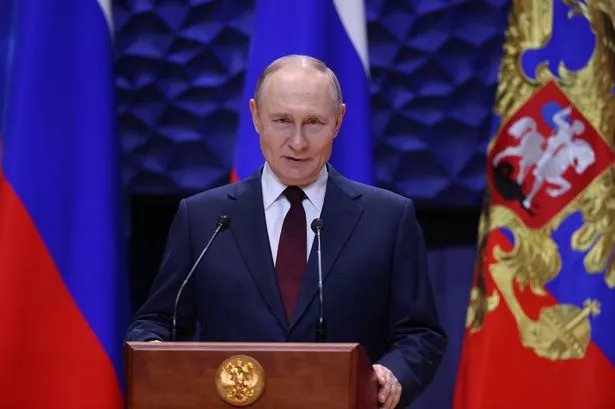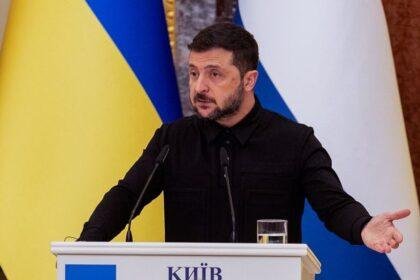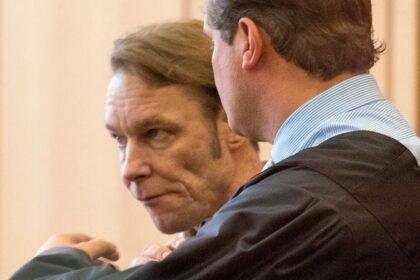EU Defense Chief Urges Preparedness Against Potential Russian Threats
In a stark warning that underscores the escalating tensions between Russia and NATO, Andrius Kubilius, the European Commissioner for Defence and Space, has called for Europe to bolster its defenses in light of recent intelligence suggesting that the Kremlin is contemplating an attack on NATO. This revelation comes amid a backdrop of heightened military activity and provocative rhetoric from both sides.
Intelligence Reports Raise Alarms
Recent assessments from German intelligence have indicated that discussions within the Kremlin may be leaning towards military action against NATO. Kubilius, in an interview with the Polish daily Wyborcza, expressed his trust in the intelligence community, stating, “I trust the secret services. And German intelligence claims it has evidence that the Kremlin is discussing an attack on NATO. If they’re discussing it, are they planning an attack?” His comments reflect a growing concern that Europe must take these signals seriously, as they may indicate a readiness for conflict.
Learning from Ukraine’s Experience
Kubilius emphasized the importance of learning from Ukraine’s ongoing conflict with Russia, particularly in the realm of drone warfare. He noted that Europe should adopt similar strategies to enhance its defensive capabilities. “We must also be ready for it and learn not only from the experiences of the Ukrainians, but also from the Russians,” he stated, highlighting the need for a proactive approach to defense.
Rising Tensions and Provocative Rhetoric
The warning from Kubilius comes at a time when tensions between Russia and the West are palpable. Recently, Russian President Vladimir Putin and former U.S. President Donald Trump exchanged barbs, each labeling NATO and Russia as “paper tigers.” This exchange reflects a broader narrative of mutual distrust and escalating military posturing.
Putin has accused NATO allies of inciting hysteria regarding potential attacks on member states, while simultaneously asserting that Russia is prepared to respond to any military competition. “If anyone still has a desire to compete with us in the military sphere, as we say, feel free, let them try. Russia’s countermeasures will not be long in coming,” he declared, signaling a readiness to escalate tensions further.
Recent Incidents Highlighting the Threat
The situation has been exacerbated by a series of incidents involving Russian military aircraft and drones intruding into NATO airspace. Experts suggest these actions may be tests of NATO’s response capabilities. For instance, on September 10, a swarm of Russian drones entered Polish airspace, prompting NATO aircraft to scramble and intercept the intruders. This marked the first direct confrontation between NATO and Russia since the onset of the war in Ukraine in February 2022.
In the days following this incident, NATO jets were also deployed to escort Russian warplanes out of Estonia’s airspace, further illustrating the precarious nature of the current geopolitical landscape. These incursions have raised alarms among European authorities, who have been cautious in their public responses, often delaying acknowledgment of such events.
Historical Context and Future Implications
The current tensions can be traced back to a long history of conflict and rivalry between Russia and the West, particularly following the annexation of Crimea in 2014. This event marked a significant turning point, leading to a series of sanctions against Russia and a reevaluation of NATO’s strategic posture in Eastern Europe.
As Europe grapples with the implications of these developments, the call for enhanced military readiness resonates with historical precedents. The Cold War era serves as a reminder of the importance of preparedness in the face of potential aggression. The lessons learned from that period may be crucial as Europe navigates the complexities of modern warfare, including cyber threats and drone technology.
Conclusion
As the specter of conflict looms over Europe, the call from Andrius Kubilius for heightened defense readiness is a clarion call for unity and vigilance. The intelligence reports from Germany serve as a stark reminder of the potential threats posed by the Kremlin, and the need for NATO allies to learn from both Ukraine’s resilience and Russia’s military strategies. In an era marked by uncertainty, the importance of preparedness cannot be overstated, as Europe stands at a crossroads in its defense strategy against a resurgent Russia.











